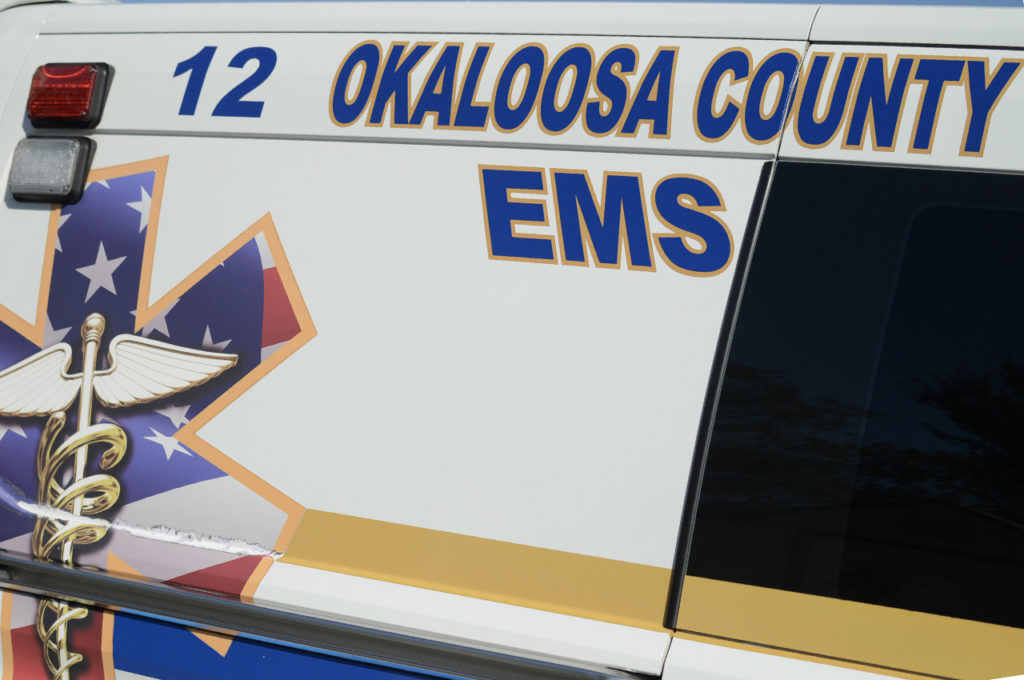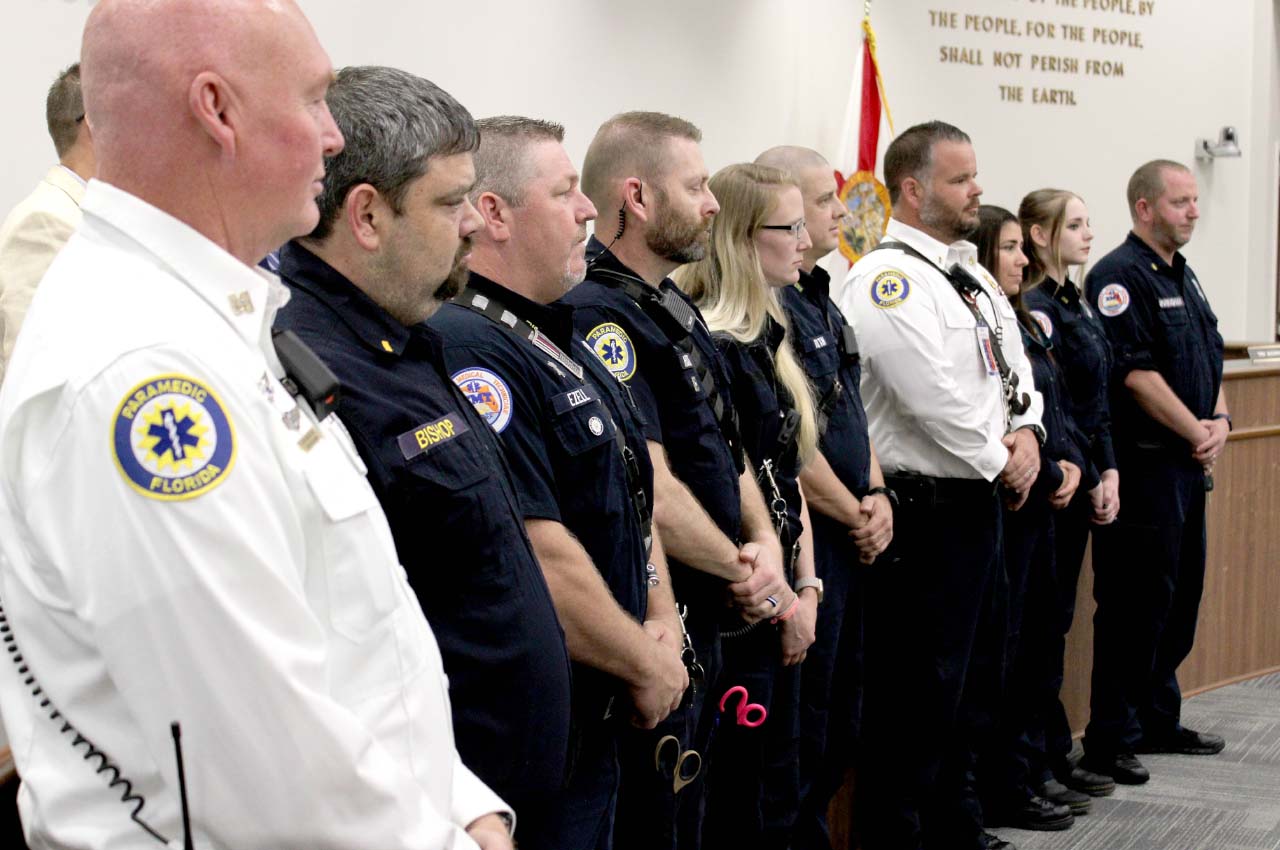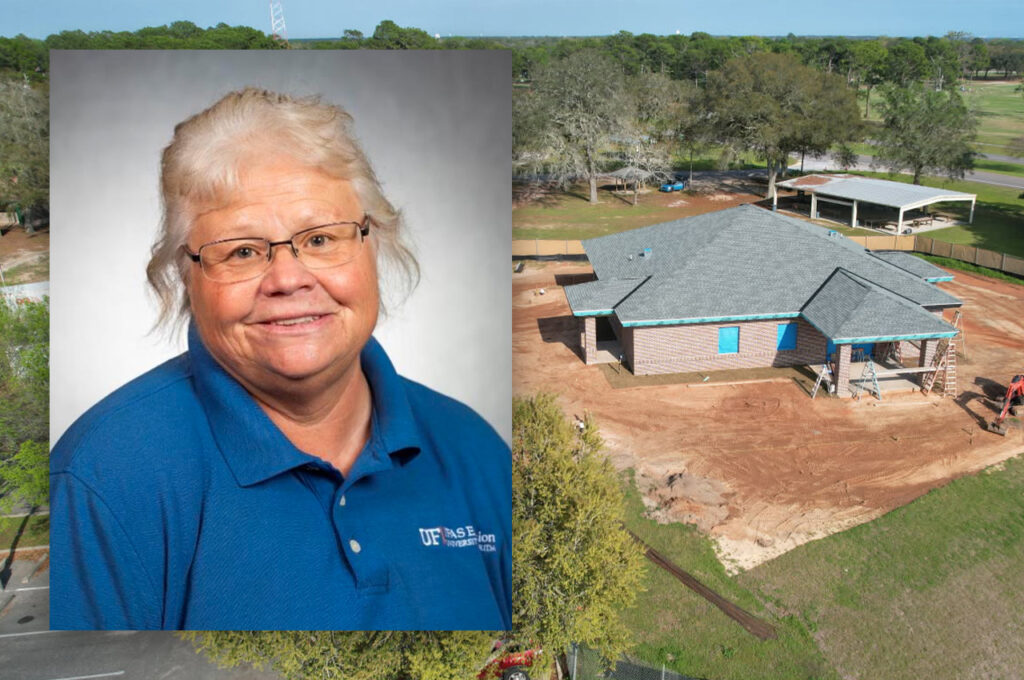For the seventh year in a row, Okaloosa County Department of Public Safety – EMS Division has received the American Heart Association’s Mission: Lifeline® EMS Gold Plus achievement award.
- This award is for the department’s commitment to offering rapid, research-based care to people experiencing the most severe form of heart attack, ultimately saving lives.
“Okaloosa County is honored to be recognized by the American Heart Association for our dedication to providing optimal care for heart attack patients,” said Okaloosa County Commissioner Paul Mixon. “Okaloosa County Emergency Medical Services has consistently performed at the Gold Standard Level for the last seven years. We are very proud of our crews and all responders for the care they give to the citizens and visitors of Okaloosa County.”
Each year, more than 250,000 people experience a type of heart attack known as an ST elevation myocardial infarction (STEMI), caused by a blockage of blood flow to the heart that requires timely treatment.
- To prevent death, it is critical to restore blood flow as quickly as possible by either mechanically opening the blocked vessel or using clot-busting medication, according to the county.

Mission: Lifeline is the American Heart Association’s national initiative to advance the system of care for patients with high-risk, time-sensitive disease states, such as severe heart attacks.
The program helps reduce barriers to prompt treatment for heart attacks – starting from when 911 is called, to EMS transport and continuing through hospital treatment and discharge. Optimal care for heart attack patients takes coordination between the individual hospital, EMS and health care system.
“The health care professionals who interact with a patient even before he or she enters the hospital or emergency room play a vital part in the system of care for those who have heart attacks,” said James G. Jollis, M.D., volunteer chair for the GWTG-CAD Systems of Care Advisory Work Group and professor of medicine at Duke University School of Medicine. “Since they are the first medical point of contact, they can save precious minutes of treatment time by activating the emergency response system that alerts hospitals to an incoming heart attack patient.”





